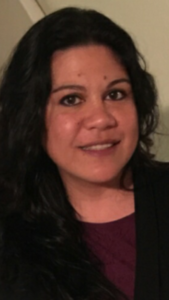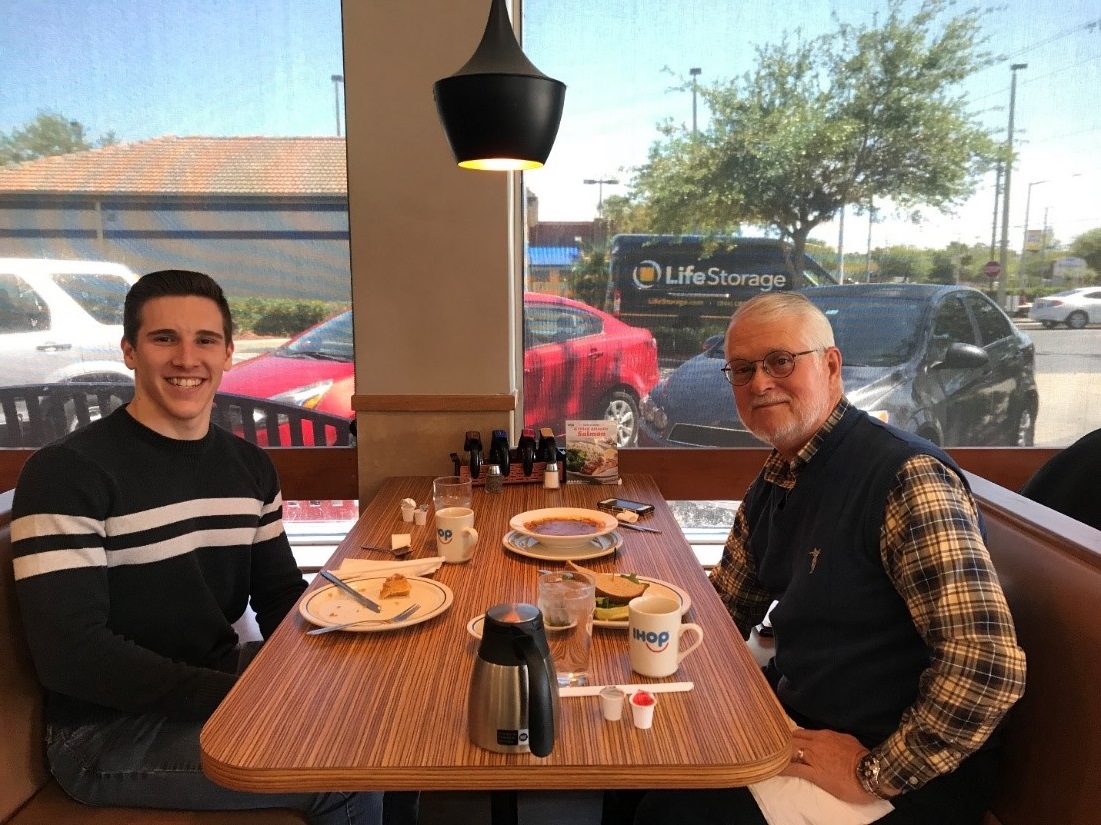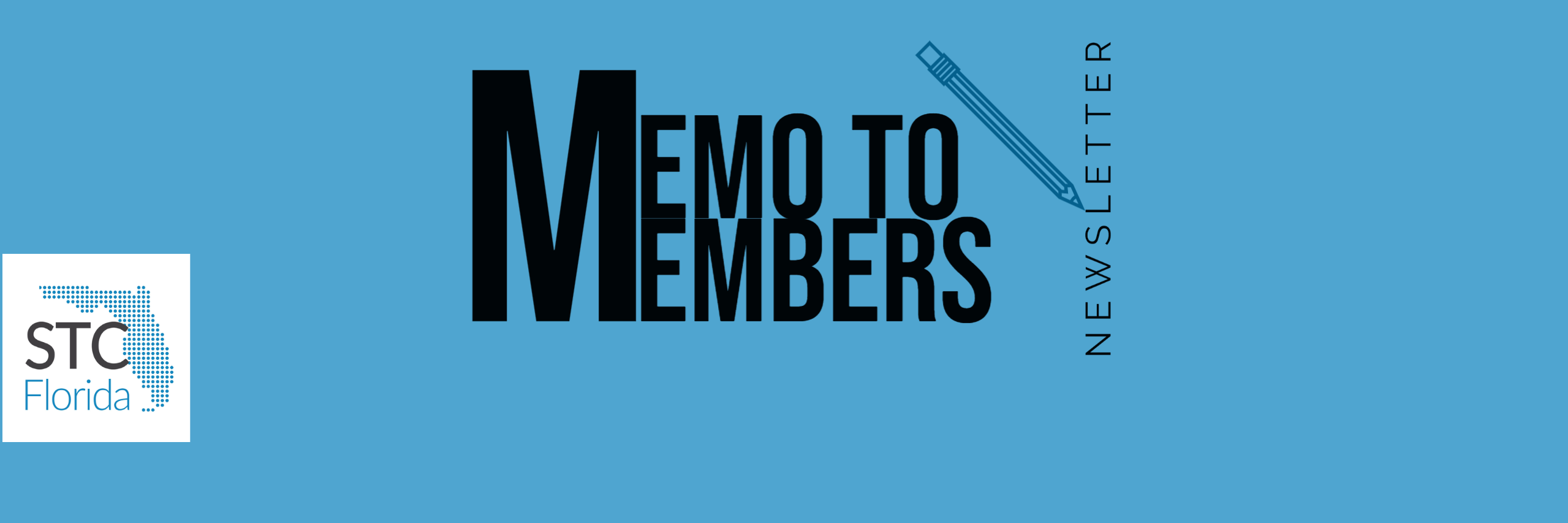
Part 3 of a 4-Part Series
FTC/STC Student Mentoring Program Wraps Up Exciting Year
And Lays Plans for Expanded Virtual Connectivity Next Year

By: Misty Arner
Co-Manager, STC-FTC Student Mentoring Program
Student Member, STC Florida Chapter
Introduction
We are getting closer to a start of another exciting year! This article presents another success story from our STC-FTC student mentorship program. As we wrap up the STC 2017-2018 chapter year, STC Fellow and returning Chapter Treasurer W.C. Wiese and FTC Treasurer Nick Mina tell their insightful success story of the program in an interview for this edition of MtM.
Research has demonstrated that engaging yourself in activities outside of work and the classroom allows you to learn more about yourself and your goals in life. Nick’s and W.C.’s story shows that volunteering your time increases your self-esteem, self-discipline, and ensures a healthy balance between study, work, and social life. Nick was introduced to like-minded people who helped him find the confidence he needed to succeed in landing a job in the technical communication field. W.C., recently retired from a 40+ year career with Lockheed Martin, was able to stay in touch with communicators and share his experience and passion for the field with future communicators like Nick.
I hope this article encourages both tech comm students and professional technical communicators to become active members in the Florida Chapter of the Society for Technical Communication (STC) as well as encourage UCF tech comm students (both undergraduate and graduate) to join Future Technical Communicators (FTC) and to participate as mentees in the STC-FTC student mentorship program.
Part 3: Chat with Mentor W.C Wiese and Mentee Nick Mina

What do you believe was the single most beneficial aspect of your mentoring partnership?
Nick: I’ve felt highly motivated throughout the partnership, because I knew that I was being held accountable for the goals I was setting. Having someone ask me about my progress each month made sure that I followed through on certain goals.
W.C: Since retiring, I’m coping with not being in daily contact with the work I’ve done for over 40 years. It’s not that I’m dealing with withdrawal or want to return to work, but working with Nick reminds me of the opportunities I was given because he approaches his future career with such energy and enthusiasm.
Sharing these experiences helps me stay in touch with the value we bring to our employers as technical communicators.
Does any particular activity or project in your mentoring partnership stand out as the most successful? Explain.
Nick: I’ve met with my mentor once a month since the partnership began, and these meetings have certainly been the most helpful aspect for me. Not only am I able to ask questions, but I’m also given personalized advice about my future and career goals.
W.C.: Nick’s in an especially good position, since he’s a junior. Many of the mentees I’ve worked with in past years have been graduating seniors who I was surprised to learn had not thought very much about getting a job. Forgive me for simplifying it, but wasn’t that why they were going to college? Several kicked the can down the road by becoming graduate students, which I don’t find beneficial in a field as applied as ours.
So, the difference in working with Nick is delightful. Instead of trying to identify employment strengths from the random projects and scraps of past experience, Nick can focus on gathering employment discriminators and conscientiously construct his resume and portfolio for another year. We are concentrating on how to beat the usual requirement for 5 years of experience by generating applicable experience while he’s still a student at UCF. His selection for college work experience at Lockheed Martin is a real plus in this area.
What is the most important thing you believe a mentee/mentor can do to derive maximum benefit from a mentoring partnership?
Nick: I think it’s important to just be honest with your mentor about your goals from the get go. There are so many paths you can take in this field, so make sure that your mentor knows which one you want to take so that he or she can give you appropriate advice.
W.C.: Obviously, the mentee must want the collaboration. For my part, I want to reward Nick’s commitment by making it as convenient as possible to meet. We get together near UCF between classes one Thursday a month.
I’m not big on adding project assignments, since he has professors who already do that. Instead, I want to convey the things I wish I’d known earlier in my career that proved most helpful. The head start stuff…
Did you face any particular challenges in ensuring a successful mentoring partnership? If so, what were they, and how did you overcome them?
Nick: Balancing a job and school can get a little overwhelming, so sometimes I wouldn’t have time to respond to an email for a few days, but my mentor was very flexible and trusted that I would get back to him. We’ve met every month since the partnership began, which has helped us stay on the same page throughout the entire process.
W.C.: Sometimes a mentee isn’t as interested in a communication career as his peers are. This shows up in an unwillingness to repair flaws in a resume, a lack of enthusiasm for interviewing, and little response to job preparation suggestions.
A mentor can only do so much. I can’t say I have a method to overcome these problems. At that point, you hope for the best. A patient recruiter maybe…
Do you have any suggestions on how the mentoring program might be improved?
Nick: I’ve had such a positive experience with my mentor, so I wouldn’t recommend any changes on my behalf. For partnerships that haven’t been as successful, I would recommend communication, whether it’s over the phone or in person, frequently throughout the entire process.
W.C.: I’m very proud that the program Dan Voss and Bonnie Spivey started 15 years ago has proved so durable and provided so many benefits to our chapter. It is a credit to the STC Florida Chapter that so many professionals in a volunteer organization have wanted to spend the time to ensure future communicators are ready for outstanding careers and become the best professional representatives they can be.
I have the sense that the mentorships we offer have been more of a push from us in STC and lack pull with endorsement from the English Department at UCF. We’re limited by the amount of volunteer energy we can provide, but it would be good (and motivating) to know how much of a difference we make—do our mentees have a higher rate of employment than those who graduate and aren’t in the mentorship program? Do graduate communicators acclimate more easily and advance more rapidly? We have some sense of this from the former students that have become standout members of the chapter, but wouldn’t it be great for UCF to track alumni results?
Access to our employment manager is a benefit associated with the mentorship program although, again, this is a volunteer service we provide. Our efforts to gain employment for UCF students could be strengthened if UCF’s placement service worked with the Florida STC Chapter to coordinate interview preparation and job openings.
I understand that Nick interviewed for and received a student intern position at Lockheed Martin’s RMS operation on Lake Underhill Road. Did W.C.’s long career at Lockheed Martin play a role in preparing for that interview? If so, how?
Nick: When I found out that I’d be interviewing at Lockheed Martin, I emailed W.C. to tell him the exciting news and to ask him for some advice. He told me to capitalize on my passion for writing and my involvement in technical communication groups like FTC and STC. Having someone who knows the company so well was vital in preparing for the interview.
What type of media work has Nick done in support of his brother-in-law’s business? And what business is that? What was W.C.’s role in that effort?
Nick: In our first meeting, W.C. urged me to volunteer my skills for my brother’s deck and dock company. I made business cards and other documents, and since then, I’ve even done work for a friend’s bakery. Because W.C. was there to hold me accountable, I felt motivated to get these projects done so that they could be put into my portfolio.
That concludes our 2017-2018 end-of-the-year interviews demonstrating our success with the STC/FTC student mentoring program.
Most of college learning happens outside the classroom. We hope to see students at our September FTC kick-off meeting. We also encourage students to join FTC, become a student member of the Florida STC Chapter, and consider applying for the outstanding STC/FTC student mentoring program.
Stand by for next month’s newsletter for details about becoming part of our mentorship program.
Watch for Part 4 of this series in the September edition of Memo to Members!

